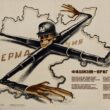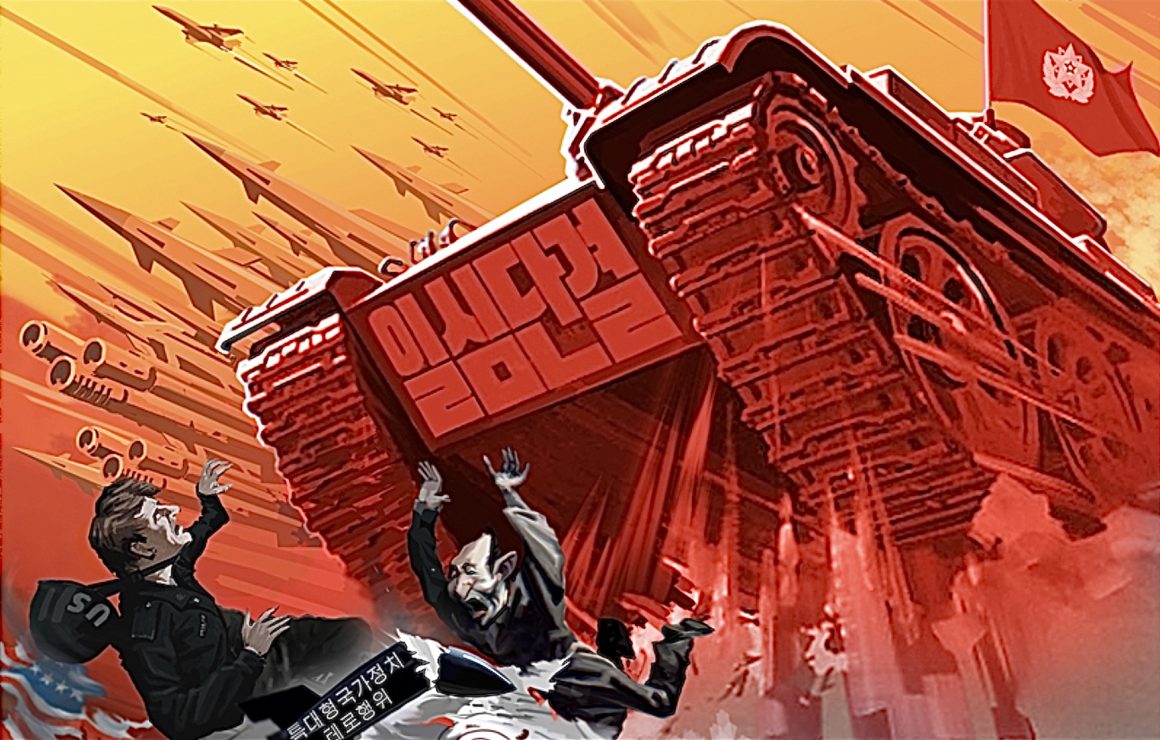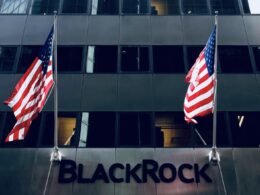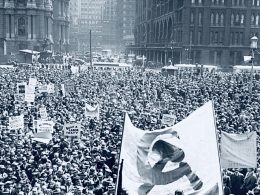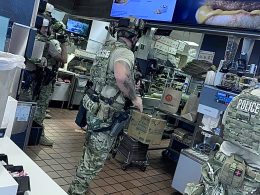Mao wrote that “We are advocates of the abolition of war, we do not want war; but war can only be abolished through war, and in order to get rid of the gun it is necessary to take up the gun.” When he said war is what it will take to abolish war, he meant wars for liberation from capitalism, colonialism, and imperialism—the systems which perpetuate and necessitate war—can only be defeated through war. He wasn’t arguing that war is always and at all times the option we should turn to when we seek to fight against oppression. There are numerous other tools we can use, from education to demonstrations to community aid to strikes. But if one discounts or omits the possibility that war will be necessary within the class and national liberation struggle, they’ll make their defeat inevitable. Because for as long as our class enemy has the capacity to wage war, it will be able to prevent revolution, unless the revolutionaries take their task seriously and prepare to counter this reactionary warfare.
The way Mao phrased this reality is:
War, this monster of mutual slaughter among men, will be finally eliminated by the progress of human society, and in the not too distant future too. But there is only one way to eliminate it and that is to oppose war with war, to oppose counterrevolutionary war with revolutionary war, to oppose national counter-revolutionary war with national revolutionary war, and to oppose counter-revolutionary class war with revolutionary class war…. When human society advances to the point where classes and states are eliminated, there will be no more wars, counter-revolutionary or revolutionary, unjust or just; that will be the era of perpetual peace for mankind. Our study of the laws of revolutionary war springs from the desire to eliminate all wars. Herein, lies the distinction between us Communists and all the exploiting classes.
Other important quotes which support his argument are “Revolutions and revolutionary wars are inevitable in class society, and without them it is impossible to accomplish any leap in social development and to overthrow the reactionary ruling classes and therefore impossible for the people to win political power.” As well as “War is the highest form of struggle for resolving contradictions, when they have developed to a certain stage, between classes, nations, states, or political groups, and it has existed ever since the emergence of private property and of classes.” I think his thesis is clear at this point: because the contradictions in civilization are currently at a stage where the oppressors can use violence to enforce their rule, the oppressed can’t at all times be peaceful in how they fight for their liberation. At least not until these contradictions are made extinct, which will first require the overthrow of the ruling class by means of force.
This point is necessary to reiterate because not everyone who considers themselves a communist believes war must be viewed as a potential tool for revolution. Caleb T. Maupin, the founder of the organization the Center for Political Innovation, has stated that this is the position on war from his tendency of “city-builders”:
We reject Left adventurism and like all responsible revolutionary organizers we advocate a peaceful, democratic transition to socialism. We recognize that as capitalism enters a crisis, the ruling classes often move to abolish democratic rights in order to preserve their power. We recognize the people’s right to defend their organizations and communities in such a context. However, we are absolutely clear that we want peace and stability, not chaos. It is capitalism that is destroying the United States of America, and socialism will rescue it, rebuilding the country on new foundations, overcoming the legacy of colonialism, slavery, and many other crimes that hang over this society as a curse.
Isn’t it readily apparent how this statement goes against the realities which Mao diagnosed, realities Mao learned after his actual experience in leading a revolution? The correct communist position on use of force is not that it should only be used in self-defense, as the CPI claims. The correct position is that should the contradictions reach their highest stage, as Mao said, war should be utilized as a tool for directly taking down the state. As long as one doesn’t make the mistake Mao warned against, which is going on the offensive when the masses are not yet ready, they aren’t engaging in adventurism. They are, as Che Guevara said, acting as a servant to the masses following the people’s demands for change: “We must come to the inevitable conclusion that the guerrilla fighter is a social reformer, that he takes up arms responding to the angry protest of the people against their oppressors, and that he fights in order to change the social system that keeps all his unarmed brothers in ignominy and misery.”
To categorize all use of force outside of self-defense as “adventurism” is ahistorical. It portrays the wars for liberation fought by Mao, Che, and many other revolutionaries as adventurist, when the success of their efforts objectively proved them not to be. Taking this position on war is putting oneself at risk of making another mistake Mao warned against, which is refusing to go on the offensive when the masses are ready. This failure to act as the kind of social reformer Che talked about, to fulfill the mandate for war that one’s conditions impose, was described by Mao as “right opportunism.” It’s prioritizing one’s individual interests over the interests of the revolution by not taking the bodily risks inherent to waging war. Should it become necessary for us to put our bodies at risk for the interests of the revolution, we shouldn’t hesitate to do so.
How do I know that war will be necessary for revolutionaries to wage within what’s currently called the United States? I don’t, no one can exactly predict the future. Still, I do know that U.S. imperialism’s internal colonies, primarily the African nation but also the First Nations and the Brown nation to similar degrees, are being forced by colonialism’s contradictions into a place of desperation. The militarization and Israelification of U.S. law enforcement, combined with an acceleration of the neoliberal rise in inequality, are combining to create the historical circumstances for a domestic insurgency from the most dispossessed and disenfranchised communities. Mass incarceration, a continuation of the settler state’s Jim Crow policies, is making such a revolt all the more likely. It’s forced millions of felons into an outcast situation where they can’t get jobs, they live under surveillance, and they are even allowed to vote within our sham capitalist “democracy.”
The descendants of the people who were enslaved, or who had their land stolen, disproportionately make up these individuals, though there are also plenty of impoverished whites who would fight alongside them because revolution is in their best interests as well. What can win these whites over is making it clear to them that without an end to settler land relations, there can be no workers’ democracy for proletarians of any color. If white workers (and white lumpenproletarians who hope to become proletarians) don’t fully account for the colonial contradiction, they won’t get the labor power they desire.
Recognizing these two important realities of our conditions—that the contradictions could heighten enough for war to come about and that the colonized nations will largely make up the vanguard for the revolution here—becomes easier when one rejects the core premise behind the CPI’s analysis. This premise being that the “United States of America” is a nation in the first place, and that following Mao’s advice of preparing for the prospect of war therefore equates to eagerness for “chaos.” The mere passage of time hasn’t transformed the country from a colony of settlers into an actual nation, because the extractive relationships inherent to settler-colonialism are as much here as ever. The USA’s people still lack the shared history and cultural values required for a cohesive national identity, since as the CPI themselves recognize, the legacy of colonialism has by no means been undone. If pressed, they would no doubt recognize that war has been and is necessary for winning revolutions throughout the peripheral countries, but they’d likely defend their position on war by claiming there’s no way war will ever be necessary under the USA’s conditions. The problem with this kind of argument is that conditions change, and ours are headed in the direction of such a civil conflict scenario.
The right opportunists, at least the more intellectually honest ones, see that the colonial contradiction is still here. What they don’t want to see is the full severity of it; the colonial contradiction is close to reaching that highest stage within contradictions that Mao talked about, the stage which produces the conditions for war. If it gets to that point, war will be the only way to end the chaos that the settler state perpetuates. It will be the most rational, most pro-peace choice, because it will be the sole route towards reaching peace.
Because the colonial contradiction is this intense, any proposed vision for socialism that doesn’t seek to fully return jurisdiction of the land to the tribes, that claims the USA should try to be “saved” rather than replaced with a post-colonial confederacy, that prematurely rejects the idea of an independent New Afrika (not to say the CPI necessarily rejects this particular idea), will not be realized. Under our conditions, the colonial contradiction is the primary contradiction. The nations that continue to be illegally occupied by a genocidal colonizer state have a right to use war to fight for their sovereignty, and international law says so. Should all peaceful alternatives for their liberation be exhausted, their most theoretically advanced members will in all likelihood mobilize towards a guerrilla struggle, and the millions of whites who’ve been comparably impoverished by capitalism will have the potential to join in. Should such a struggle emerge, and should it receive the proper guidance from trained revolutionary leaders, it will not be an undemocratic route towards socialism as the CPI implies. It will be the most democratic event in the country’s history, which is an effort to overthrow the fundamentally anti-democratic USA.—————————————————————————
If you appreciate my work, I hope you become a one-time or regular donor to my Patreon account. Like most of us, I’m feeling the economic pinch during late-stage capitalism, and I need money to keep fighting for a new system that works for all of us. Go to my Patreon here.



